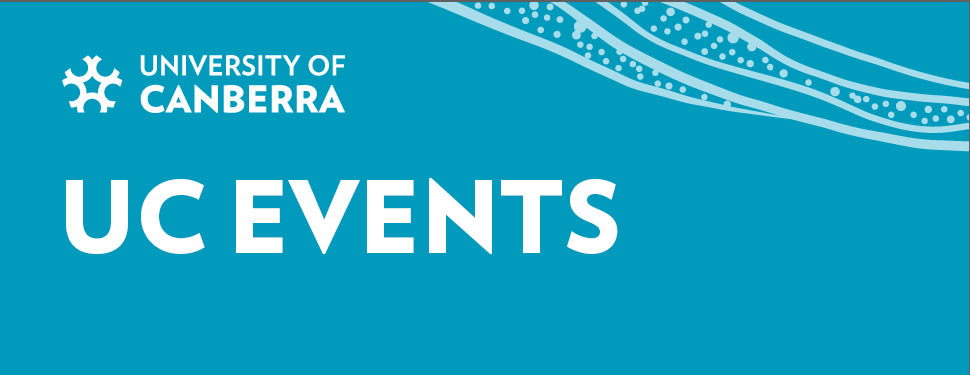

Dates and Times
Event for
Location
Organiser
Speakers
Enquiry
Culture and Creativity Seminar – Exploring the Dramaturgical Potential of Human-Robot Ensembles Through Devised Physical Theatre
Speakers: Prof. Damith Herath, Dr. Maleen Jayasuriya, Piumi Wijesundara
Date\Time: Thursday 24 April 2025, 12:30-13:30
Location: Building 1 Level A Room 1A21, University of Canberra (NB Room 1a21 is accessed from the foyer joining Building 1 and Mizzuna café);
or Zoom: https://zoom.us/j/95029077504
Abstract
This presentation explores the dramaturgical potential of human-robot ensemble performance through devised physical theatre methodologies. This work is part of Tthe Robots, Art, People and Performance Laboratory (RAPP Lab), a living laboratory that functions as an experimental sandbox where roboticists and artists converge to explore the untapped possibilities of human-robot interaction through the lens of performance. Born from a spirit of curiosity, experimentation and play, the third iteration—RAPP Lab 03—brought together 10 movement artists from various backgrounds to investigate new theatrical possibilities. Using a UR10 collaborative robot, we examine how Meyerhold's biomechanics and Lecoq's Tréteau theatre frameworks can inform human-robot collaborative performance for dramaturgical storytelling. Our approach uniquely leverages the robot's inherent constraints and capabilities: workspace limitations are reframed through confined performance space principles of Tréteau theatre, while its precise movement control is explored through biomechanical movement structures. Grounded in South Asian sociocultural narratives, this project addresses the underrepresentation of culturally diverse perspectives in technological art.
All are welcome!
Bio
Professor Damith Herath is a roboticist and Professor of Robotics and Art at the University of Canberra, where he leads the Collaborative Robotics Lab. With over 20 years of experience in multidisciplinary and translational robotics research, he's an award-winning entrepreneur who founded Australia's first collaborative robotics startup. Hiswork explores the intersection of roboticsand art, including pioneering collaborations with renowned artists like Stelarc. As lead editor of "Robots and Art: Exploring an Unlikely Symbiosis," he's made significant contributions to human-robot interaction across diverse domains, merging technical innovation with artistic exploration.
Maleen Jayasuriya is a Lecturer in Robotics at the University of Canberra, specialising in human-robot interaction. With a PhD from the University of Technology Sydney, his research spans robot perception, deep learning, and collaborative robotics. Maleen is passionate about integrating arts with technology, drawing from his experience in theatre, filmmaking, animation, and game development. At the Collaborative Robotics Lab, he explores the intersection of robotics, explainable AI, psychology, and art, bringing a unique interdisciplinary perspective to robotics research.
Piumi Wijesundara is a theatre artist specialising in devised theatre and physical performance. She holds an MA in Theatre Directing from East 15 Acting School (UK) and trained in biomechanics at the Russian Institute of Theatre Arts (GITIS). Currently Public Programs Producer at CMAG, she was previously a Program Manager at NIDA and served as Co-Artistic Director of Stages Theatre Group Sri Lanka. She is also a Visiting Lecturer of Applied Theatre at the Faculty of Arts, University of Colombo Sri Lanka. Her directorial works include "Awa/Kaawa/Giya" and "Ovaryacting!" with international directing/acting credits spanning Australia, Sri Lanka, UK and Rwanda.
Acknowledgements
RAPP LAB 03 Devised Workshop Team: Annika Kendall, Chipz Jin, Marlene Radice, Sandy Ma, Molly Yao, Michael Armstrong, Fi Peel, Deni Dominguez, Mia Rashid, Imogen Yang
Research Assistant: Yue Peng
Music: Dilruk Warnakula, Marlene Radice, Sukitha Bandaranayake
The Culture and Creativity Seminar Series is hosted by the Centre for Cultural and Creative Research (CCCR), Faculty of Arts and Design, University of Canberra. To discover upcoming seminars, please follow us on Facebook @uccccr, or Instagram and Twitter @uc_cccr. Alternatively, join our mailing list by emailing cccr@canberra.edu.au.
Any questions and accessibility requests please contact: cccr@canberra.edu.au.


